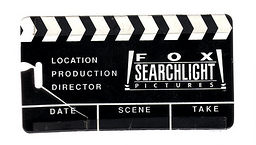Unpaid Internship Lawsuits On The Rise

The unpaid internship is billed as a way for aspiring young professionals to “pay their dues” before entering the workforce. Some students who enter fashion, media, and other entertainment-related companies, which typically offer unpaid internships, accept these programs that include tasks such as bringing coffee, faxing, mailing, and other tedious administrative duties. It is accepted as a rite of passage into the professional world and excused as an opportunity to network and build your resume. Regardless of the grunt work, many interns are ready and eager to do whatever it takes to get their foot through the door, especially with the low job prospects for new graduates.
Recent lawsuits against companies such as Fox Searchlight Pictures, Conde Nast, and Hearst Corporation bring light to the possibility that several companies are exploiting interns for little to no compensation. The interns contesting against these companies argue that their internships violated the Fair Standards Labor Act, which outlines six key aspects that must be upheld for an unpaid internship to be legal. This includes points that the internship program must not immediately benefit the employer but rather the student, and that the intern cannot take on work that a paid employee would normally do. Lauren Ballinger, who interned for W Magazine under Conde Nast, received $12 a day while Matthew Leib, a former intern at The New Yorker, received between $300 and $500 for a three to four month internship, according to Reuters. A federal judge ruled in favor of Eric Glatt against Fox Searchlight Pictures, stating that he was doing work of an employee and, therefore, should have been paid.
Several USC students who have taken such internships have arrived at the conclusion that when a company pays the intern an hourly wage, they are investing in him or her. They are more likely to take the time to make sure that not only is the intern learning valuable and marketable skills during the time spent there, but they too are getting the best out of their investment. Former FOX intern and USC student Andria Kowalchik said her paid internship experience made her a better employee. She said, “I felt valued…like I was accomplishing something rather than wasting my time.”
Research from the National Association of Colleges and Employers shows that the benefits of an unpaid internship may not outweigh the sacrifices, even with the pressure to intern rising. The study found that “the median starting salary for new grads with paid internship experience is $51,930—far outdistancing their counterparts with an unpaid internship ($35,721) or no internship experience ($37,087)” which remains true for all college majors. Additionally, NACE shows that “63.1 percent of paid interns received at least one job offer [and] only 37 percent of unpaid interns got an offer.” For the last three years this study has been conducted, paid interns surpass their peers in each survey released.
Students still fear asking for pay because other students would gladly and quickly take their position for no pay. A USC student who prefers to remain anonymous said, “When I interned for this celebrity management company, there was no way I was going to complain about not getting paid. I did every coffee run, food order, envelope-licking task they asked and without protest. I knew that hundreds of other students would easily take my place in a second.” The student accepted the position because of “the name and the connections. It led me to my next internship which was paid.” After the recent lawsuits, many interns are speaking out on how their internships are exploitive and provide little educational value. However, the connections that come with adding some of these programs to your resume, if used tactfully, can be beneficial.
The creative fields are highly competitive and filled with lots of talented and hardworking individuals, but companies may be missing out on another group of exceptional students when offering credit-only internships. These unpaid internships usually bring in students of means who are able to get support from their family members, as described in an article released by Yahoo! News. This can leave out well-qualified students who cannot participate because of financial setbacks. Courtney Wallace, senior at USC, says, “I cannot afford to take an unpaid internship which cuts my options in half, if not more.” Not all students can work for free, especially if they are working to pay for school or other bills and when the internship requires college credit. This means that the student must enroll in an internship course in addition to their internship, which tends to be costly. Conversely, this could also mean the few and growing number of companies that do pay their interns may be increasing the competition by drawing in a more diverse group of prospective interns.
While the growing number of lawsuits is highlighting unfair practices that have gone under the dark, the real issue is whether or not these and many other companies will make the adjustments to their internship programs, which would make them legal. Forbes’ Susan Adams highlights the concern that some companies may eliminate internship programs altogether, while other companies like NBC Universal and now Fox Searchlight Pictures pay all of their interns, as many other companies follow suit. Will there one day be an end to unpaid internships? We can only hope.
Reach Reporter Julia Tabar here.



